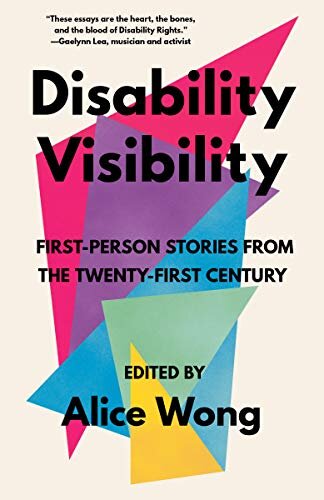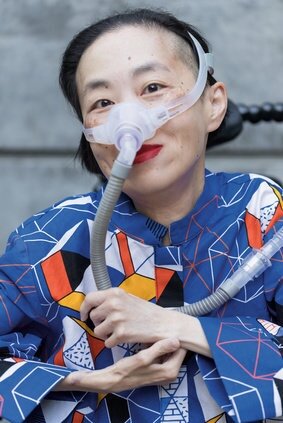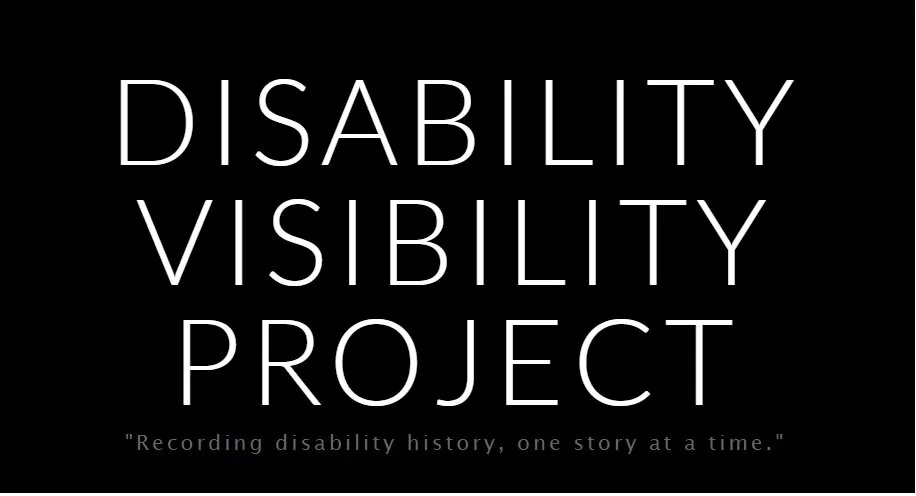Who I'm Looking Up To: The Voices In Disability Visibility
A.H. Reaume. Alice Sheppard. Alice Wong. Ariel Henley. Britney Wilson. Diana Cejas. Ellen Samuels. Elsa Sjunneson. Eugene Grant. Haben Girma. Harriet McBryde Johnson. The Harriet Tubman Collective. Jamison Hill. Jen Deerinwater. Jeremy Woody. Jessica Slice. Jillian Weise. June Eric-Udorie. Karolyn Gehrig. Keah Brown. Keshia Scott. Lateef McLeod. Leah Lakshmi Piepzna-Samarasinha. Liz Moore. Mari Ramsawakh. Maysoon Zayid. Patty Berne. Rebecca Cokley. Reyma McCoy McDeid. Ricardo T. Thornton Sr. Sandy Ho. s.e. smith. Shoshana Kessock. Sky Cubacub. Stacey Milbern. Talila A. Lewis. Wanda Díaz-Merced. Zipporah Arielle.
These are the authors of the stories told in the new book Disability Visibility: First Person Stories from the 21st Century. Compiled and edited by Alice Wong, a disability activist and founder/director of the Disability Visibility Project (DVP), this book shares with its readers first-hand accounts of living with a disability through original pieces, blog posts, manifestos, eulogies, testimonies to Congress, etc. As a person with a disability I was equal parts angered, shocked and inspired reading their stories.
Originally launched as a one-year oral history campaign to mark the 25th anniversary of the passage of the Americans With Disabilities Act (ADA), the Disability Visibility Project is an online community dedicated to creating, sharing, and amplifying disability media and culture.
Along with being the founder of DVP, Alice Wong is also a co-partner on DisabledWriters.com, #CripLit, #CripTheVote and Access Is Love. She has been recognized on both the local and national levels for her activism, served as a member of the National Council on Disability under President Obama, was listed as Time Magazine’s 16 people fighting for equality in America...I could go on and on.
“We can take all approaches when it comes to improving disabilityrepresentation in media—advocating for seats at the table, pushing for change from gatekeepers that don’t want to change the status quo, and creating our own stories and media for the world to see without permission or apology.”
-Alice Wong
People with disabilities comprise the largest minority in their world yet their voices have continually been ignored. The Disabilities Rights Movement is not taught in schools, I certainly didn’t learn about it during my history classes. It was not until passage of the Americans With Disabilities Act of 1990 that it became illegal to discriminate on the basis of disability, that public areas had to be made accessible. The ADA turns 30 this year and while great strides have been made, there is certainly a long way to go. We still live in an ableist society that needs to remember disability doesn’t discriminate.
I encourage you all to read Disability Visibility; once I started it I could not put it down. It is, for me, one of those books that is life changing. Each of these voices deserve to be heard. Each of their stories deserve to be read.
“Storytelling can be more than a blog post, essay, or book. It can be an emoji, a meme, a selfie, or a tweet. It can become a movement for social change.”
-Alice Wong
LEARN MORE:
DISABILITYVISIBILITYPROJECT.COM
Disability Visibility Podcast
Books - Disability Visibility Project
FOLLOW SOCIAL MEDIA:
Additional Articles:
Time Magazine’s 16 People Fighting For Equality In America



